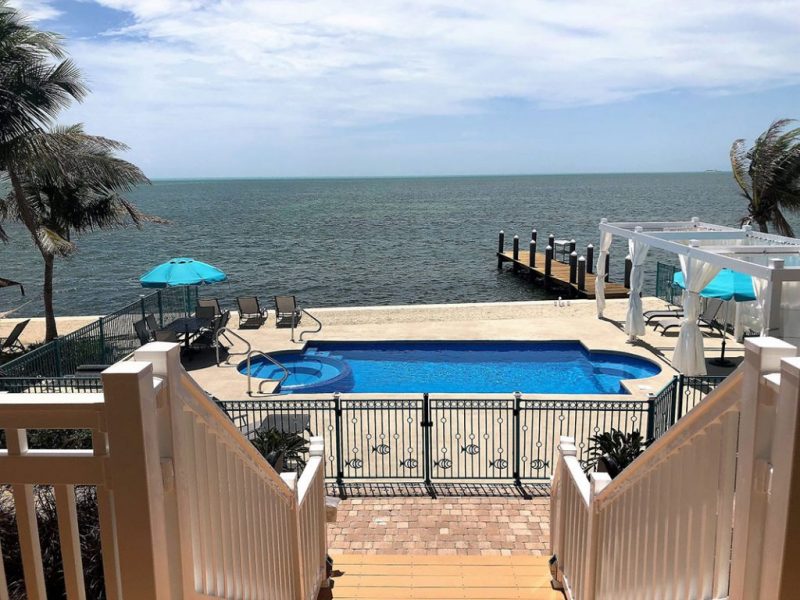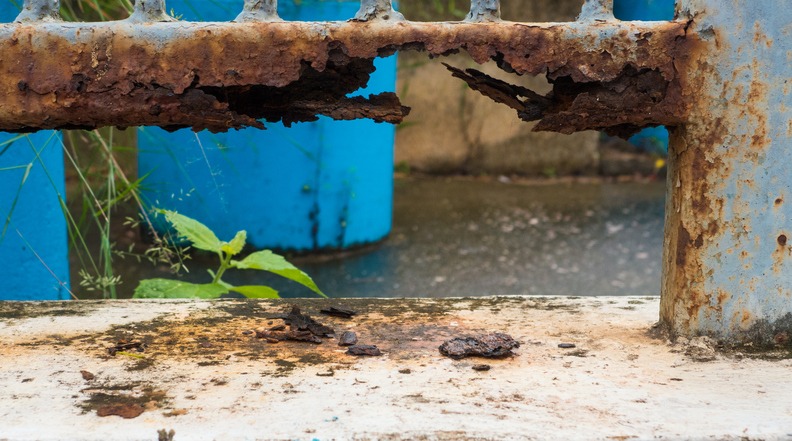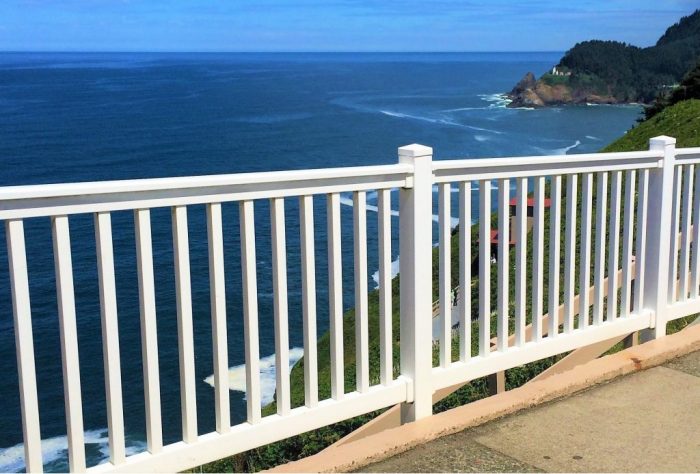How Salt Water Corrosion Is Devaluing Your Property and How to Stop It
https://www.vinylfenceanddeck.com/products/vinyl-railing/miami/
Coastal properties come with many advantages. The view is incredible, with the ocean and beach right in your back yard. Coastal homes also give a sense of serenity, with beautiful sun rises or sets, depending on which coast you’re on.
The downside of owning property near the coast is that they are prime targets for salt water corrosion. Even if your home isn’t off the water, the closer you are to the sea, the more you should consider strategies for salt water corrosion protection.
The Chemistry of Corrosion
Before acting on strategies to combat corrosion, you first have to understand what’s happening. Corrosion is a natural process that gradually destroys materials like metal, by chemical and/or electrochemical reaction with the environment.
Corrosion on your property is most likely caused by the oxidation of metal — which means your metal is reacting to oxygen or sulfates in the air, forming rust on the metal.
Seawater corrosion is another process caused by salt water reacting to a metal. Metals commonly found on residential properties like stainless steel and titanium are often exposed to seawater corrosion.
Rust can be prevented with a process called galvanization. This process adds a protective layer of zinc to the surface of metal. The costs of galvanization can ultimately be avoided if homeowners pick the right materials (like vinyl) for a variety of common household features.
Corrosion on Wood
Delignification is when wood corrodes or deteriorates from salt water. This process creates the furry material on wood you may have seen on a pier. As the salt eats away the wood, the weaker the structure becomes.

Corrosion on Metal
The corrosion process is sped up when you introduce salt water to the formula.
Salt water corrosion of metals happens faster than freshwater because of the increase presence of dissolved ions. These ions allow electrons to move faster on the metal, speeding up the formation of rust. The metal doesn’t have to be submerged in salt water for this to happen. Salt water’s presence in the moisture in the air and salt spray alone can place the ions on metal.
Salt water corrosion will make material weak and brittle. That’s why it must be addressed when it occurs on your property.
Common Corrosion Points on Your Home
Corrosion is most notably found in metal pipes carrying water throughout your home. The ever-present contact with water can speed the corrosion process whether your home is by sea water or not.
Many other areas of your property are vulnerable to corrosion, too. Here are a few examples:
Foundation
If your home’s concrete foundation is supported by steel rods, they could be in danger of corroding. If the steel rods start to corrode, the concrete is in danger of weakening and crumbling. Rust takes up more volume than steel, so when corrosion occurs, your steel reinforcement expands, breaking apart the concrete.
Plumbing
Copper corrosion is a common hassle many homeowners have to deal with. This type of corrosion appears when the water’s pH level is too high or too low, when a high level of salt is dissolved in the water, sand or other sediments are introduced into the water or improper installation.
With your home near seawater, the presence of salt in the air will make it challenging to keep your home’s pipes from rusting. This rust can contaminate your water, discoloring your home’s supply and giving it an unpleasant taste and smell.
Outdoor Features
Outdoor features like fences and decks are great ways to boost your property value. Unfortunately, they can also be prime candidates for salt water corrosion if you’re near the coast.
Salt water corrosion of metal and wood fences and decks happen fast because they are exposed to salt in the air’s moisture all the time, making them highly susceptible to seawater corrosion. There are strategies you can try to combat this issue, but it takes time and money to properly treat your metal or wood deck and fence year after year.
Solution
Most homes near the coast are built with salt water considerations. It’s still smart to take action and make sure your home isn’t corroding away in the places you can’t see. But it’s difficult to reframe your house with steel or reinforce foundation with concrete. You can be proactive, however, and check your home’s foundation frequently to make sure your home’s structure is safe and sound.
For plumbing, proper care of your copper pipes can help prevent corrosion from affecting your home’s water. Here’s a helpful video that will give you the knowledge you need to help prevent corrosion.

For additions to your home such as a deck or fence, there is a definite solution to seawater corrosion.
The best salt water corrosion protection plan you can have is to install vinyl fences and decks, instead of wood, metal, or aluminum.
At Vinyl Fence Wholesaler, we have vinyl solutions for your home’s deck, fence and railings. You have found and bought a great property along the coast, now it’s time to protect it against corrosion.


